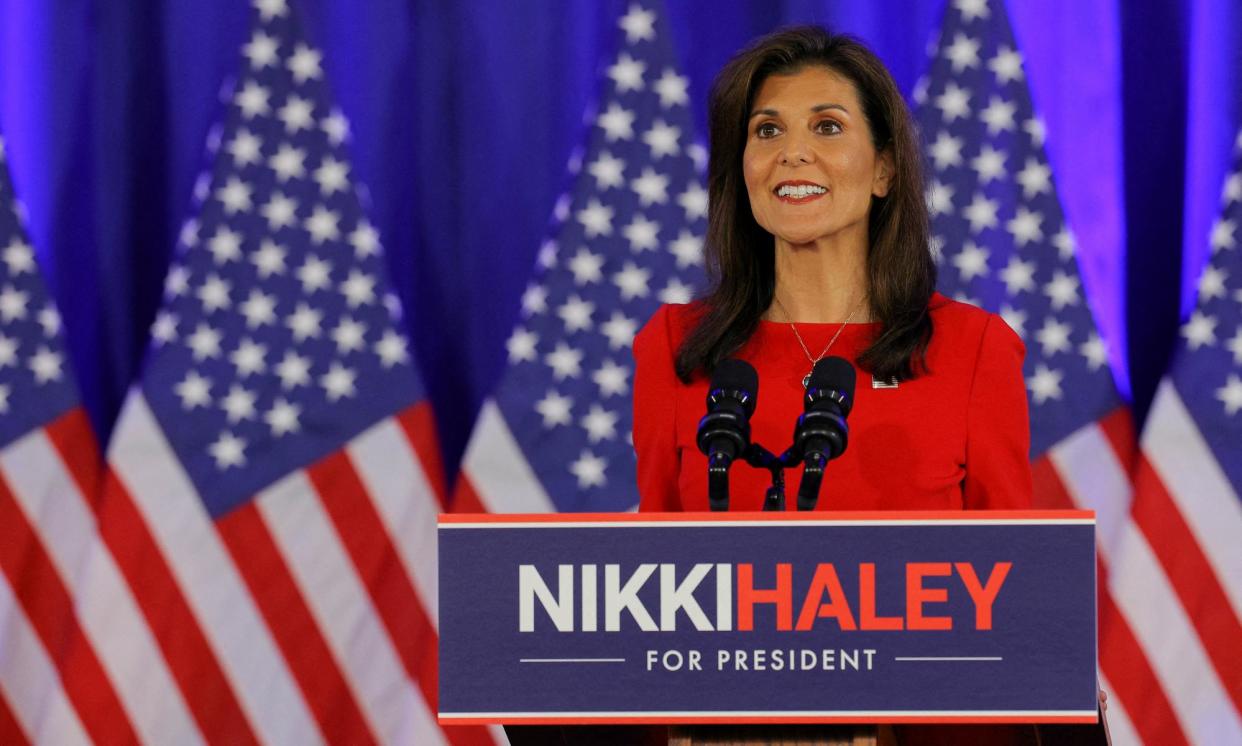Nikki Haley takes new job at ultra-conservative thinktank

- Oops!Something went wrong.Please try again later.
- Oops!Something went wrong.Please try again later.
Nikki Haley, who was Donald Trump’s last remaining challenger for the Republican presidential nomination until she dropped out of the race in March, has a new job.
The former South Carolina governor has accepted a role with the Hudson Institute, a Washington DC-based, ultra-conservative thinktank specializing in foreign policy affairs.
She will become the institute’s Walter P Stern chairperson, a post named for Hudson’s former chairperson who died in 2022. Haley served as US ambassador to the UN during Trump’s presidency and is the fourth member of his administration to join Hudson.
Former attorney general William Barr did so in 2020, and ex-secretary of state Mike Pompeo as well as former transportation secretary Elaine Chao did so the following year.
“When our policymakers fail to call out our enemies or acknowledge the importance of our alliances, the world is less safe,” Haley said in a statement from Hudson announcing her appointment. “That is why Hudson’s work is so critical.
“They believe the American people should have the facts and policymakers should have the solutions to support a secure, free, and prosperous future. I look forward to partnering with them to defend the principles that make America the greatest country in the world.”
The statement did not detail what Haley’s responsibilities will be, whether the position is salaried, or if she will be required to work from Hudson’s Washington DC headquarters.
“It is fitting that Nikki has taken on this title. She is a courageous and insightful policymaker and these qualities are vital in making Hudson the powerhouse policy organization it is today,” said Sarah May Stern, the chairperson of the board of trustees that governs Hudson.
Previous prominent Hudson figures have included Henry Kissinger, the late veteran diplomat and Nobel peace prize winner; Dan Quayle, who served as vice-president to George HW Bush from 1989 to 1993; and Alexander Haig, White House chief of staff in the administrations of Richard Nixon and Gerald Ford, then secretary of state for Ronald Reagan from 1981 to 1982.
Haley, who received Hudson’s global leadership award in 2018 for her work at the UN, would appear a good fit for the institute, which has demonstrated strongly pro-Ukraine and pro-Israel positions in recent months.
In contrast to Trump’s America First policies advocating little US involvement in overseas conflicts and affairs, Haley staunchly promoted a robust US foreign policy in her time at the UN.
Her relationship with Trump turned sour after she declared her candidacy for their party’s presidential nomination. And unlike others who dropped out before her, she has declined to endorse the former president’s return to the White House.
Analysts say her position makes her an unlikely candidate to be Trump’s vice-presidential pick despite her enduring popular with large numbers of Republican voters.
“It is now up to Donald Trump to earn the votes of those in our party and beyond who did not support him, and I hope he does that,” Haley said during a short concession speech in Charleston, South Carolina, in March.
“While I will no longer be a candidate, I will not stop using my voice for the things I believe in.”

